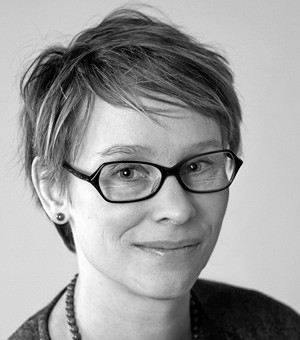The dream of medical breakthroughs must never come at the cost of patient safety.

Photo: Einar Nilsen
In 2011, news media reported that the first ever transplantation of a synthetic trachea with the aid of stem cell technology had been performed at the Karolinska University Hospital, promising a revolution in transplantation surgery.
Paolo Macchiarini was a successful Italian thoracic surgeon. In 2010, he and his colleagues at University College London had undertaken the first transplantation of a trachea that had been taken from a deceased donor and seeded with stem cells from the patient. At a centre for advanced airway surgery, established by the Karolinska Institutet and the Karolinska University Hospital, Macchiarini was to develop the method a step further by using synthetic transplants. Moreover, things were to proceed quickly: fourteen leading researchers at the Karolinska Institutet jointly sent a letter to the recruitment committee asking for the employment process to be speeded up.
This was to prove the first in a series of fateful decisions. Because, as was shown by the subsequent inquiry, the haste with which the surgeon was employed was one of the reasons why the false information in his resumé was not discovered and negative references about Macchiarini never reached the recruitment committee (1).
Red flags continued to appear. After the first operation, a Belgian surgeon contacted the vice-chancellor of the Karolinska Institutet directly and warned that this method could not possibly work (2). In 2014, four of Macchiarini’s closest colleagues sounded the alarm. Not much happened, though. Macchiarini was cleared of all allegations of research misconduct and his employment contract was extended. The doctors were threatened with criminal investigation and dismissal for having accessed patient records without permission (3).
It does not speak well for the academic community that a documentary on Swedish national television was needed to uncover this research scandal (4). Bo Lindquist’s interviews with the young Russian mother whom Macchiarini operated on despite the fact that she was not suffering from any life-threatening injury – and who later died from the complications – shocked an entire nation. So did the revelation that the patients had been operated on without any prior animal testing of the method.
According to the academic publications written by Macchiarini and his collaborators, the plastic implants were vascularised and covered in normal mucous membrane. The reality was different. The artificial tracheae failed, filled with pus and scar tissue. Six of the eight patients whom Macchiarini operated on are now dead. Among the three patients operated on at the Karolinska University Hospital there is only one survivor, who has been in intensive care ever since.
The inquiry concluded that a casual attitude to rules and regulations was directly connected to the tragic outcomes for the patients (5). If a prior ethical assessment had been made, the operations would most likely not have been undertaken. However, the Karolinska Institutet had defined the operations as «compassionate care» and thus circumvented the requirement for ethical approval of clinical research. The patients’ conditions were not immediately life-threatening, though, and the interventions should therefore have been submitted to the ethics committee for assessment, according to Kjell Asplund, who headed the clinical inquiry. Nor had any ethical approval been granted for the use of a new synthetic material and non-approved growth stimulants that may have contributed to thrombosis in the patients, and this made matters even worse.
Complications occurring after the first operation at the otorhinolaryngology clinic in Huddinge ought to have set the alarm bells ringing. However, the operations that followed were undertaken before the evaluation of the first one had become available. Ambiguous areas of responsibility and unclear hospital affiliations gave Macchiarini free rein. A culture permeated by a fear of taking issue with the management – «the culture of silence» – and passive group-think were additional ingredients (3).
In parallel with his activities in Sweden, Paolo Macchiarini also operated on five patients at a hospital in Krasnodar. It was hardly a coincidence that he chose Russia as the place to continue his experiments. Clinical research is increasingly relocated from rich to poor countries where the costs are lower, patients enjoy fewer rights and the ethical loopholes are more numerous than in the West. The scandal at the Karolinska Institutet is probably no more than the tip of the iceberg.
When all is said and done, each researcher remains responsible for his or her results. However, the host institution is responsible for having adequate systems for detecting research misconduct and reacting quickly whenever suspicions of wrongdoing arise. The Karolinska Institutet and the Karolinska University Hospital have acknowledged their responsibility and publicly expressed their regret for the tragic outcomes that the operations entailed for the patients and their families. The openness demonstrated with regard to the ongoing clean-up sends a clear signal of willingness for transparency. The report from the committee of inquiry and other information on the Macchiarini case are easily available on the institute’s website (6).
The Swedes have uncovered a number of structural issues that can be improved to ensure good and ethically sound clinical research. Here in Norway, we too need to take a lesson from their experience.